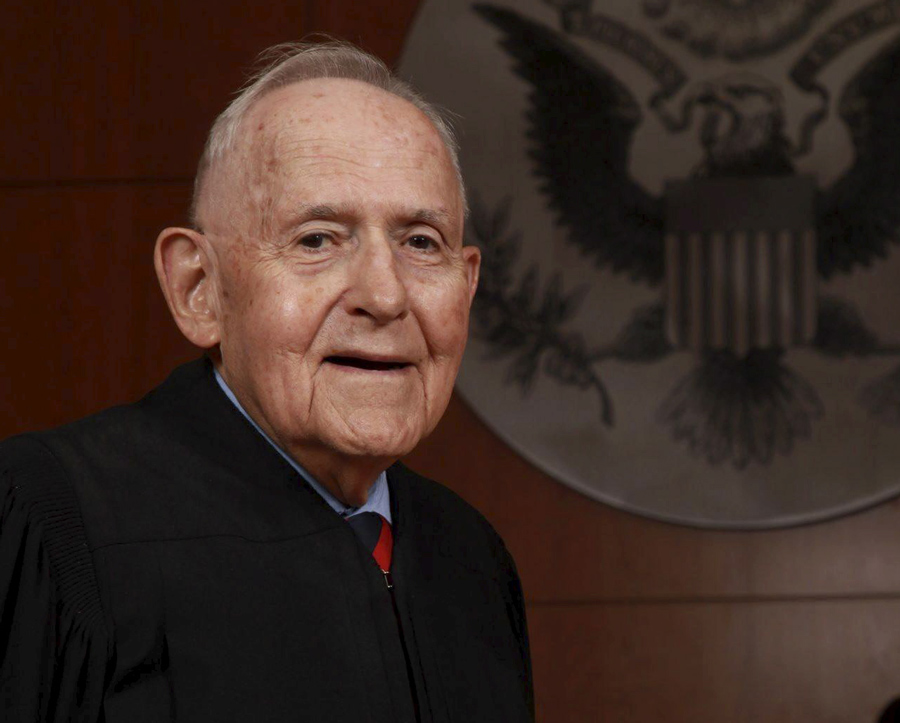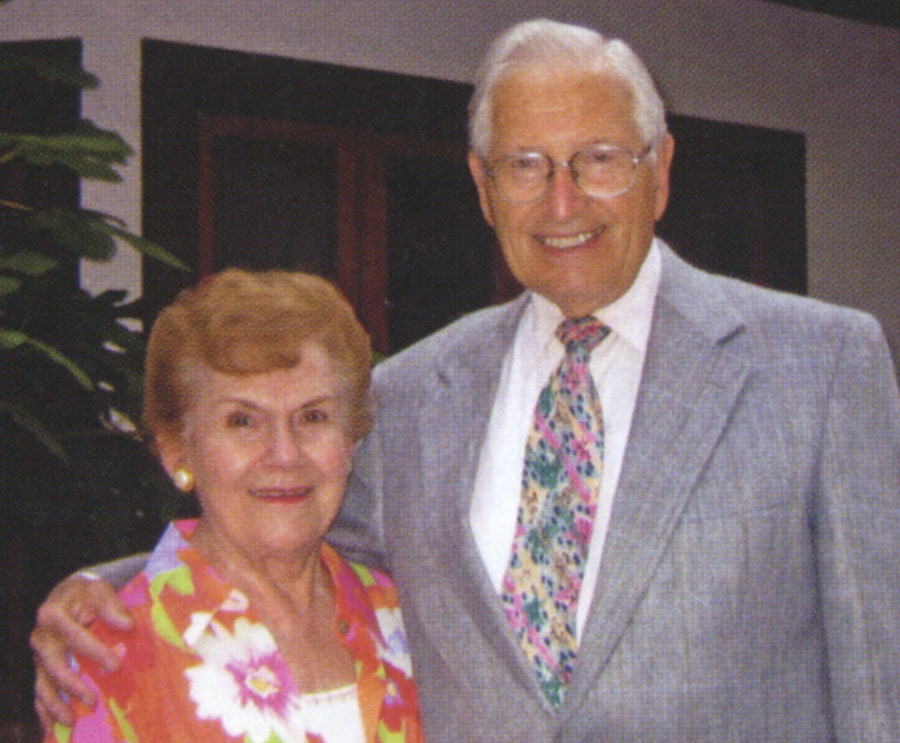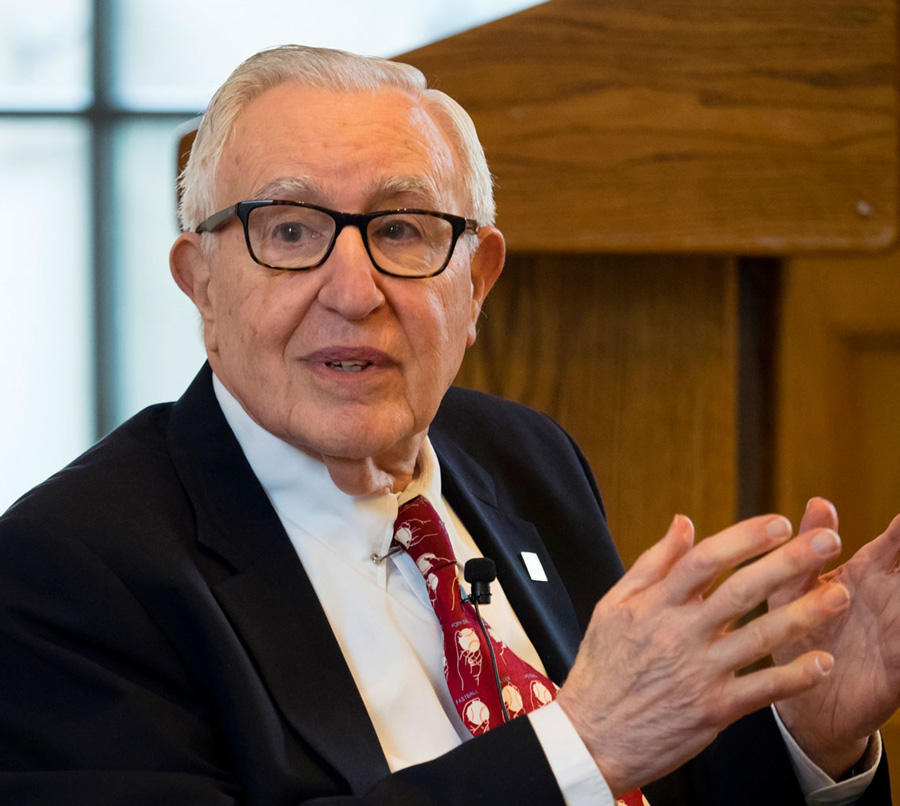Born in Brooklyn to one of the first female attorneys in the country, Cohen worked as a welder in the Brooklyn Navy Yard during World War II while taking classes at Brooklyn Law School. She then pursued a doctorate in city planning before marrying Dr. Samuel Cohen, who predeceased her. The family moved to Altoona, Pa., where she became an active member of the community and raised her children.
Later, Cohen earned a master’s degree in library science and worked at Mount Aloysius Junior College until 1989. Upon her retirement, she and her husband moved to Marietta, Ga., where she volunteered at the Atlanta History Center assisting in the restoration of fabrics, including several Atlanta Braves uniforms, and became active in the National Embroiderers Guild, winning awards for her stitching. Her baking skills were the subject of an article in the Columbus Dispatch.
Cohen is survived by her children Larry, Gil, Susan, and Doug; her brother Major Cohen and sister-in-law Marthe Cohen; her sister-in-law, Suzanne Bourgeois Cohen; and nieces and nephews.
Born in Long Beach and raised in Locust Valley, Dyson was later a resident of both Lenox Hill in Manhattan and Tuxedo Park, N.Y. After graduating from Brooklyn Law School, Dyson practiced law at Hawkins Delafield & Wood as one of the first female attorneys at a large downtown firm.
In addition to her legal career, Dyson had a lifelong commitment to philanthropy. She served as trustee emerita of the Museum of the City of New York, and was the 11th president of the Society of Memorial Sloan Kettering. She was involved with the Metropolitan Opera and a member of the Isaac Stern Society of Carnegie Hall. In addition, she was a decades-long member of the Colony Club and the Union Club in Manhattan, and the longest-serving member of the Tuxedo Club, one of America’s oldest country clubs.
Predeceased by her husbands Randy Marston and Charles Dyson, she is survived by stepsons John and Robert, 10 step-grandchildren, nieces and nephews, her devoted caregiver Maria, and many friends.
Dyson gave a lasting legacy to Brooklyn Law School by including in her estate a gift to support scholarships.

Spatt was known for his extraordinary work ethic, presiding in his chambers six days a week even after gaining senior status at the court in 2004. Even during the COVID-19 pandemic, Spatt maintained a full case load while working from his home in Commack, N.Y.
“Beyond having a first-rate legal mind, Judge Spatt may have been the most tireless and diligent worker Brooklyn Law School has ever produced,” said Dean Cahill. “Not a single day of his long and admirable life was spent idly or in vain. He fully embodied the professionalism we hope to instill in all of our graduates.”
Spatt was born in Brooklyn. He joined the U.S. Navy at age 17, serving as a navigation petty officer in the Pacific during World War II. Upon his return, he used the GI Bill to attend Ohio State University and then Brooklyn Law School.
He spent the next 25 years in private practice before entering the New York State judiciary. After serving in various roles in the state and Nassau County justice systems, he was appointed to the federal bench in 1989 by President George H.W. Bush.
Spatt’s chambers were regularly staffed by students from the Law School, whom he brought on as interns and clerks. In 1991, the Law School honored him as one of its Alumni of the Year.
In December 2019, the atrium of Central Islip’s federal courthouse was dedicated in Spatt’s honor to commemorate his 40 years of service as a federal judge.
During his lifetime of service, Spatt was “uninhibited by ego,” according to Richard P. Donoghue, U.S. Attorney for the Eastern District of New York, in an email to his staff. “[He] would describe himself as ‘just a lucky kid from Brooklyn.’”
Spatt was predeceased by his wife Dorothy, and is survived by five daughters, 10 grandchildren, and one great-grandchild.

Over his 38-year career with INS, a legacy agency of the U.S. Department of Labor, Bernsen rose from working as a messenger on Ellis Island to holding top leadership roles, including four years as general counsel, and helped shape American immigration law for a generation. He worked on a variety of issues, including the denaturalization and deportation of Nazi war criminals and racketeers. Policy that he developed at the agency would later be enacted into law by Congress in the Immigration & Nationality Act Amendments of 1981. Another set of his policies would, years after his retirement, form the basis for the Deferred Action for Childhood Arrivals (DACA) program. He taught at the Foreign Service Institute of the State Department and the INS Officer Development Center, and was a frequent speaker at the conventions of the American Immigration Lawyers Association and the National Association of Foreign Student Advisers.
After retiring from the federal government, Bernsen went into private practice with the firm that would later be known as Fragomen, Del Rey, Bernsen and Loewy. There, he opened its Washington, D.C., office, and assisted clients such as movie star Yul Brynner. He also served as an adjunct professor of immigration law at Catholic University and American University, and authored over 20 published articles on immigration law.
Bernsen was born in New York City in 1919. He attended the City College of New York and graduated with honors from Brooklyn Law School. During World War II, he served in the U.S. Army for four years. He would later join the Air Force Reserve and retire as a major.
He was predeceased by his wife Elizabeth and son Clifford. Survivors include his son Stuart and daughter-in-law Judith.
Bernsen’s generous support of the Law School was recognized by a reading room in the library named for him and his wife.
Growing up during the Great Depression, he was a student at St. John’s University when he was recruited to the 761st Tank Battalion, the first African American battalion to see combat during World War II.
After being honorably discharged in 1947 and receiving a Purple Heart, he returned to St. John’s to complete his bachelor’s degree in 1948, and after that, his law degree from Brooklyn Law School.
He became the first African American to serve in two local offices: first, as the Village of Hempstead prosecutor in 1957, and again as the Town of Hempstead’s assistant attorney in 1961. A decade later, he joined the county as the deputy attorney, taking on the role of executive assistant to the commissioner of health for Nassau County.
A longtime member of the Hempstead Republican Club, he was also involved with the Hempstead Housing Authority and served on the village’s board of zoning appeals.
Even as he rose through different positions, Mascoll would continue to provide free or low-cost legal assistance out of his home in Hempstead. This was true even after his retirement in 1989.
In 2019, Mascoll was recognized by the U.S. House of Representatives for his achievements on the occasion of his 100th birthday.

Born and raised in Brooklyn, Gladstone served a tour of duty with the U.S. Air Force as a second lieutenant during the Korean War and spent most of his business career at Arthur Young & Company. He played a key role in the firm’s merger with Ernst and Whinney and became cochief executive of Ernst & Young in 1989.
Gladstone and his partners purchased the Pittsfield Mets franchise in 1992, and, in 2002, he was instrumental in moving the team to Troy, where it was renamed the Tri-City ValleyCats. He was elected to the board of directors for the National Baseball Hall of Fame and Museum in 1991 and was a member of Minor League Baseball’s board of trustees for 12 years, and he served on the board of directors and executive committee for the New York–Penn League. In 2015 he was crowned the “King of Baseball” by Minor League Baseball for his dedication and service to the sport.
Gladstone is survived by his daughter Susan, son Doug, and five grandchildren. He was predeceased by his wife of more than 60 years, Millie, who died in 2018.
Anderl is a defense lawyer and partner at Anderl & Oakley. He previously served for a decade as assistant prosecutor at the Essex County Prosecutor’s Office. Salas, seated in Newark, was nominated by President Barack Obama and confirmed in 2011. Prior to that she served as a U.S. magistrate judge in New Jersey.
June 10, 2020
July 11, 2020
April 9, 2020
June 8, 2020
May 21, 2020
July 17, 2020
August 13, 2020
September 21, 2020
January 27, 2020
July 10, 2020
March 20, 2020
April 16, 2020
March 27, 2020
February 17, 2020
May 20, 2020
April 13, 2020
February 9, 2020
August 8, 2020
June 10, 2020
July 11, 2020
April 9, 2020
June 8, 2020
May 21, 2020
July 17, 2020
August 13, 2020
September 21, 2020
January 27, 2020
July 10, 2020
March 20, 2020
April 16, 2020
March 27, 2020
February 17, 2020
May 20, 2020
April 13, 2020
February 9, 2020
August 8, 2020
June 10, 2020
July 11, 2020
April 9, 2020
June 8, 2020
May 21, 2020
July 17, 2020
August 13, 2020
September 21, 2020
January 27, 2020
July 10, 2020
March 20, 2020
April 16, 2020
March 27, 2020
February 17, 2020
May 20, 2020
April 13, 2020
February 9, 2020
August 8, 2020